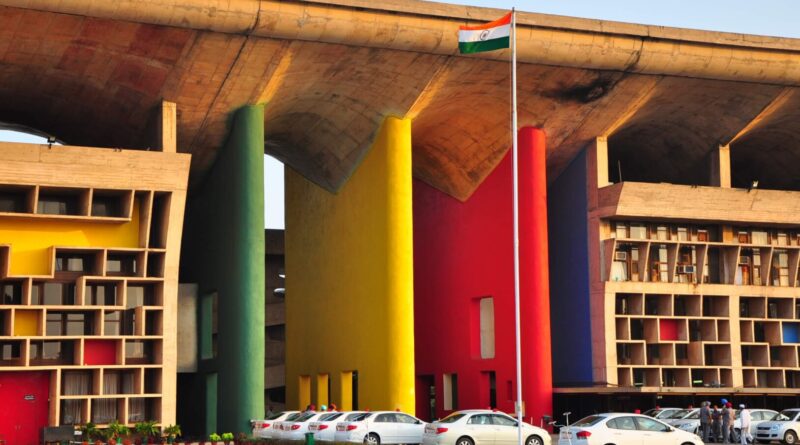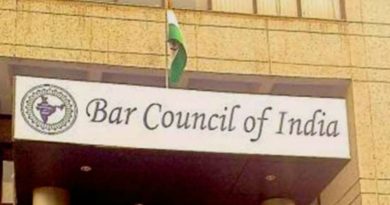Legal Showdown: LLM Student Takes Jindal Global Law School to Court Over AI Mislabeling in Exam Submission
(Judicial Quest News Network)
A student pursuing his LLM in Intellectual Property and Technology Law at Jindal Global Law School has filed a lawsuit against the institution after being declared failed due to allegations of submitting AI-generated exam answers.
The petition was initiated by Shakkarwar, who has previously worked as a law researcher for the Chief Justice of India and has experience in litigation and intellectual property law. On May 18, he took an end-term exam for the subject “Law and Justice in a Globalizing World,” only to be informed by the university’s unfair means committee that 88% of his answers were deemed AI-generated. Consequently, on June 25, he was officially declared failed, a decision upheld by the Controller of Examination.
Shakkarwar argues that there is no explicit prohibition against the use of AI in exam submissions and contends that his work was original, created without AI assistance. His lawyer, Prabhneer Swani, stated that the university has failed to provide any evidence to support its allegations.
The petitioner is a practicing advocate specializing in intellectual property law, representing various clients before the Central Board of Indirect Taxes and Customs and the Delhi High Court. An engineer-turned-lawyer and AI entrepreneur, he operates an AI platform for legal professionals called fidy.in, while also pursuing a Master’s degree in law at the respondent university, Jindal Global Law School.
The university alleged that the petitioner submitted an AI-generated assignment for the course “Law and Justice in a Globalizing World,” resulting in a failing grade. He was subsequently notified that his case would be reviewed by the university’s Unfair Means Committee.
In preparation for the hearing, the petitioner submitted a memo of arguments and requested access to essential documents from the university; however, these documents have not been provided to date. He sought clarification regarding any specific regulations prohibiting the use of AI in exam submissions, but these details were also not shared. The petitioner claims that the committee was biased in its initial assessment and did not allow him a fair opportunity to present his case.
Following the committee’s decision, which resulted in his failure, the petitioner was informed that he could appeal to the Examination Appellate Committee and was directed to write to the Controller of Examinations for this purpose. The petitioner formally protested against the committee’s findings, seeking explicit details about the appeal process.
To his shock and dismay, after a delay of approximately four months, the Controller of Examinations dismissed his appeal without allowing him a hearing. Faced with what he perceives as unjust treatment from the university and lacking any effective remedies, the petitioner is now seeking redress against the university’s decision.
Additionally, the petitioner asserts that under the Copyright Act of 1957, even if AI was used, copyright would still belong to him, as AI is merely a tool. The Punjab and Haryana High Court has scheduled a further hearing on the matter for November 14, pressing Jindal Global University for a response.
The petitioner has further stated that
- There is no violation in the first place:
- The university’s rules (called the First ordinance) must state what is plagiarism and what is not
- The university’s rules (called the First ordinance) as per the Haryana Private Universities Act, 2006 must be approved by the Govt. and then notified in the gazette as per section 32 thereof. This is the only way a university gets its validity in Haryana.
- The Petitioner’s first challenge is that the “First ordinance of O P Jindal University” was never approved and never gazetted as per section 32. Thus, what is not a law, the petitioner cannot be in offence thereof.
- If the court accepts this argument, it could question the very legal standing of OP Jindal University.
- Shakkarwar also claims that OP Jindal Global University failed to follow the legal requirement of publishing its first ordinance in the official gazette, which renders the university’s rules unenforceable.
- The university has not supplied the “First ordinance of O P Jindal University” i.e. the university rules to the petitioner despite sending around 30 emails – and non supply of documents is a clear violation of the principles of natural justice.
- Moreover, upon pestering by the Petitioner, the university has denied supply of the “First ordinance of O P Jindal University” i.e. the university rules by calling it an “archived document” – further clearly violating the principles of natural justice.



